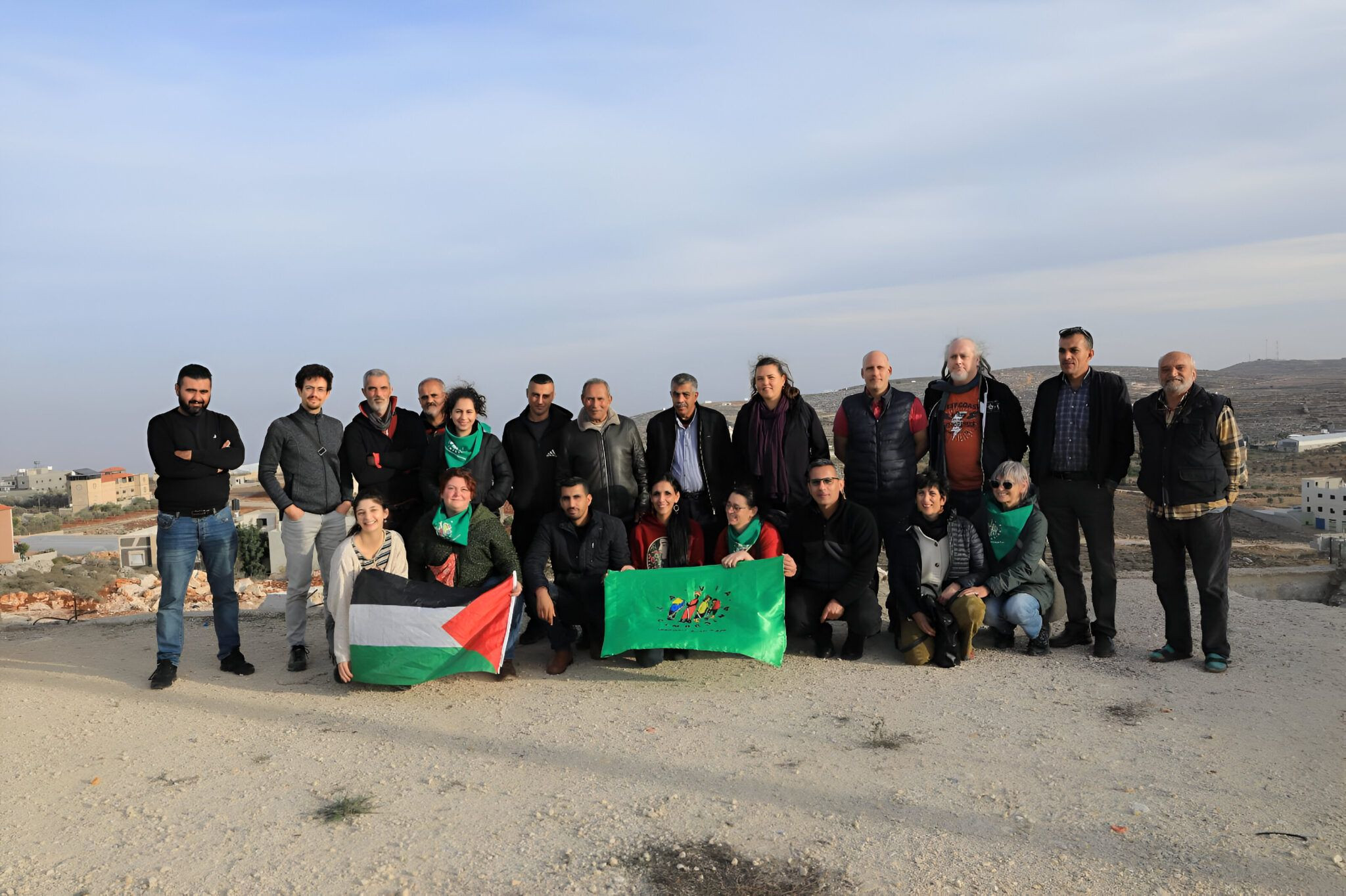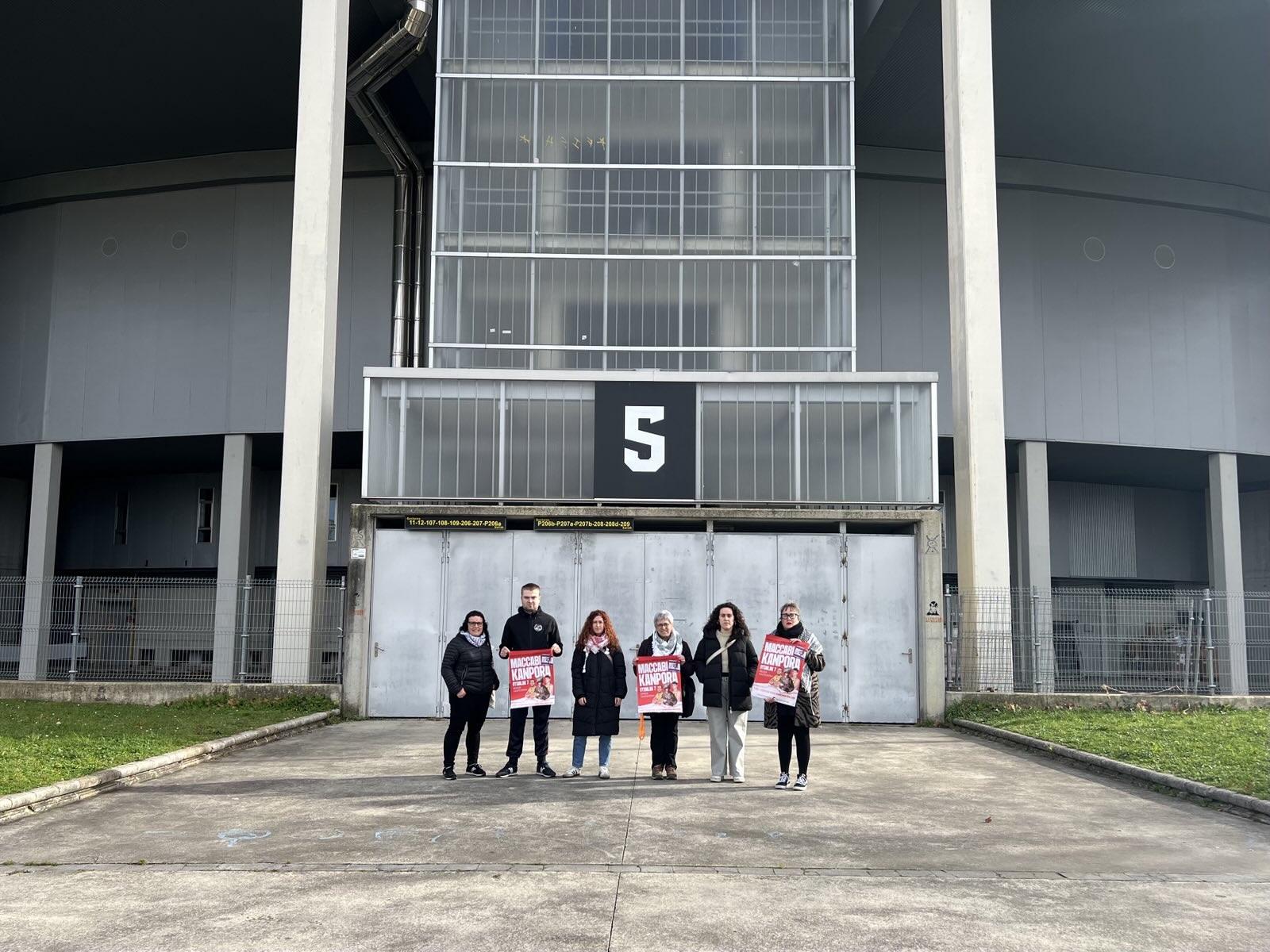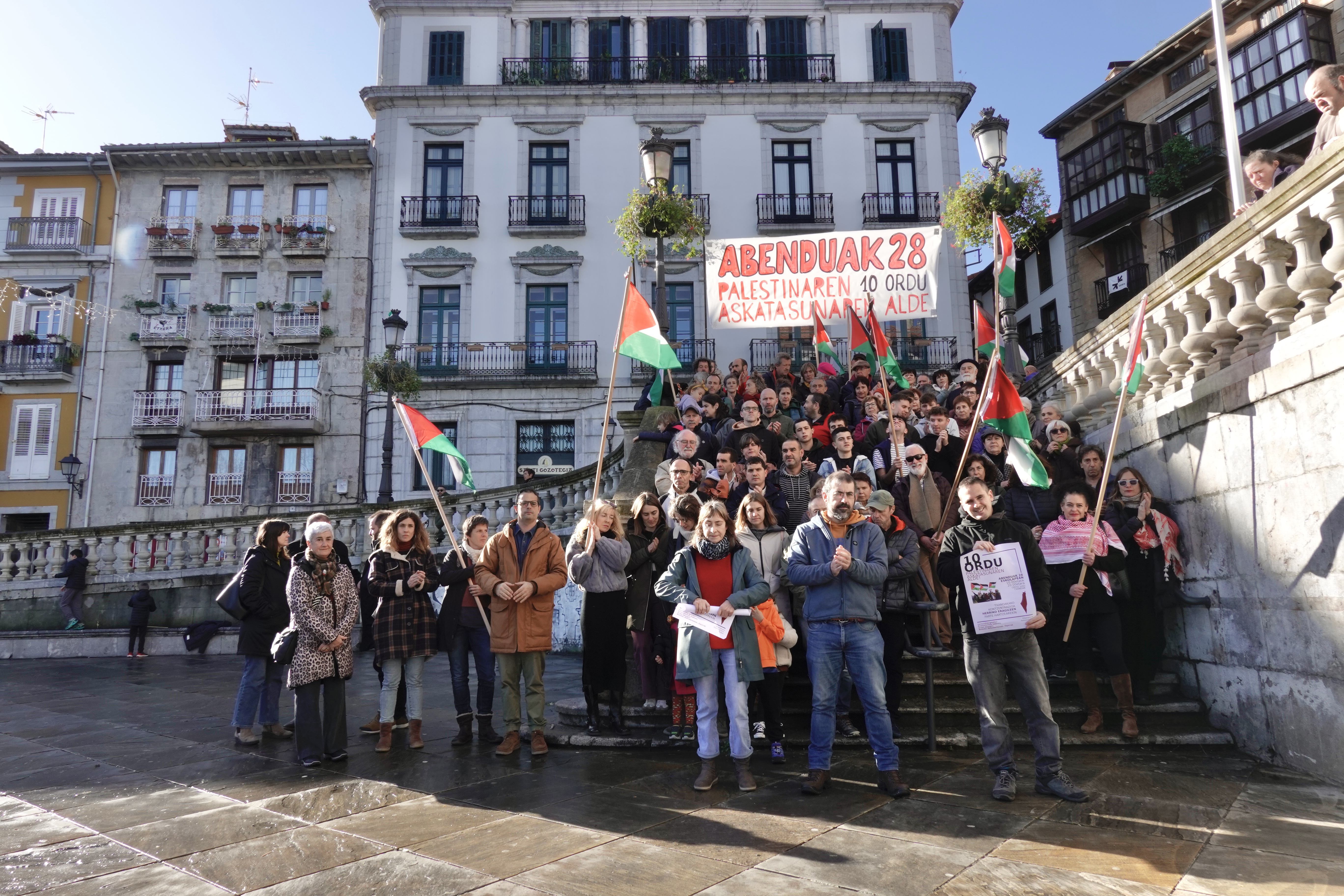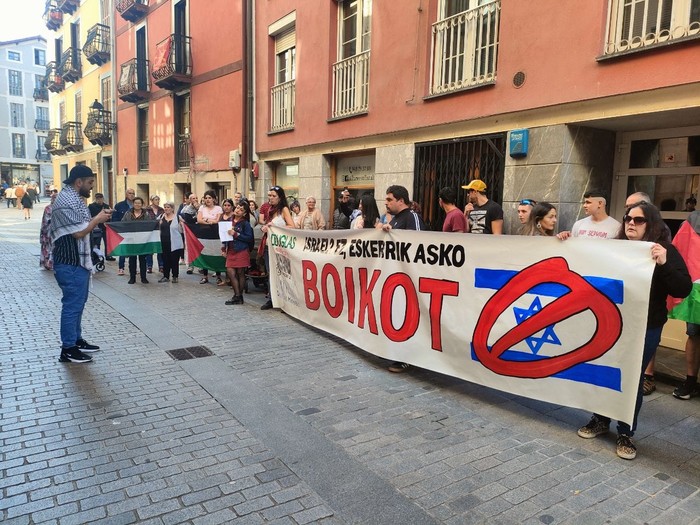Representatives of Vía Campesina have witnessed the violence suffered by the Palestinian peasants
- A delegation from Via Campesina visited Palestine from 8 to 18 December, invited by the Union of Palestinian Working Committees (UAWC), of which it is a member. On this journey, they wanted to show their solidarity with the Palestinian people "amid the genocide taking place in Gaza and in this systematic displacement to the West Bank". Along with this, the aim of the journey has been to "document the occupation of Israel and the policies of apartheid being carried out". Land seized by Israel, restricted access to water, damaged and stolen crops, as well as farmers struggling to maintain food sovereignty have been found.

Vía Campesina is a global movement that brings together peasants and peasants who work for food sovereignty. Currently it has 180 organizations and about 200 million farmers, and several representatives of them, including the Basques Malu Egiluz and Miguel Arribas "Kelo", have spent ten days in marked areas such as Nablus, the Jordan Valley, the Ramallah, Bethlehem or the Hebron. There they have met with Palestinian farmers, authorities and representatives of social organisations, such as women’s cooperatives, youth organisations and human rights defenders, among others.
Via campesina explains that in these meetings a "painful reality" has been found: "The systematic policy of homelessness, land confiscation and reduced access to water have completely destroyed the livelihood resources of Palestinian farmers and farming communities."
The delegation of Vía Campesina has pointed out that "the settlers have witnessed the violence they use under the Israeli Army every day". Farmers explained to them the attacks they have suffered, the destruction of crops and the theft of their produce. The inspection staff makes the following assessment: "All this shows that a determined effort is being made to get the Palestinians moving and being expelled from their means of survival," he added. These testimonies highlight the need for international intervention to end these crimes against humanity."
Those who have worked as observers have been given "a deep impression" of the hospitality they have received from the Palestinian people and "of their indestructible spirit". Their resistance, their generosity and their firm commitment to justice embody the necessary strength to overcome decades of oppression."
Resistance actions of Palestinian farmers
Representatives of Vía campesina have claimed to have witnessed "how Palestinian peasants are resisting, with a siege of determination to continue on their lands, despite the displacements and violence they have been suffering for decades". Among the initiatives of resistance are the work being done by UAWC Jordan in the valley to remain a source of food for Palestine: it helps farmers to recover land, it fosters seed banks and also training sessions. For Via campesina, "these initiatives seek to maintain the food sovereignty of the Palestinians and cast doubt on the foundations of Israel's colonial project".
50 square kilometres of required area and 900 control areas
The representatives of Vía Campesina have been able to see with their own eyes the 50,000 dunam that Israel has demanded of the Palestinians since 7 October 2023: a dunam is 1,000 square metres, which is 50,000,000 square metres or, what is the same, 50 square kilometres.
As if it were not enough, Israel has 900 control zones established and "prevents it from circulating in the West Bank", denounced from Via Campesina: "These measures have isolated Palestinian cities and towns and have turned everyday life into a struggle for survival, between growing settlements and military controls," he added.
"Vía campesina denounces the role of accomplice of Western governments"
The Palestinian delegation of Via Campesina has called for the boycott of products from Israeli settlements and for condemning any kind of agreement that promotes occupation. Via campesina has denounced that "Western governments authorize these atrocities with silence and through the trade agreements they have with Israel". "Governments and human rights defenders must act decisively, with responsibility for Israel and with solidarity with Palestinian farmers and communities."
Via campesina has insisted that "he will strengthen his commitment to the Palestinian cause" and that he will continue to echo "the voices that are in the front line".
“The massacres in Gaza are war events and the culprit is Hamas. (...) I don’t need to be ashamed at all of Israel’s way of fighting. (...) Everyone would be happy if Israel finished its work.” These are the words of Haïm Korsia, the Grand Rabbi of France – the highest... [+]
Okzitaniako Tolosako elkartea da aipatu kolektiboa eta Frantziako Gobernuak dekretuz desegin zuen 2022an. Orain Estatu Kontseilua gobernuaren erabakia egokia dela berretsi du.
















.jpeg)

